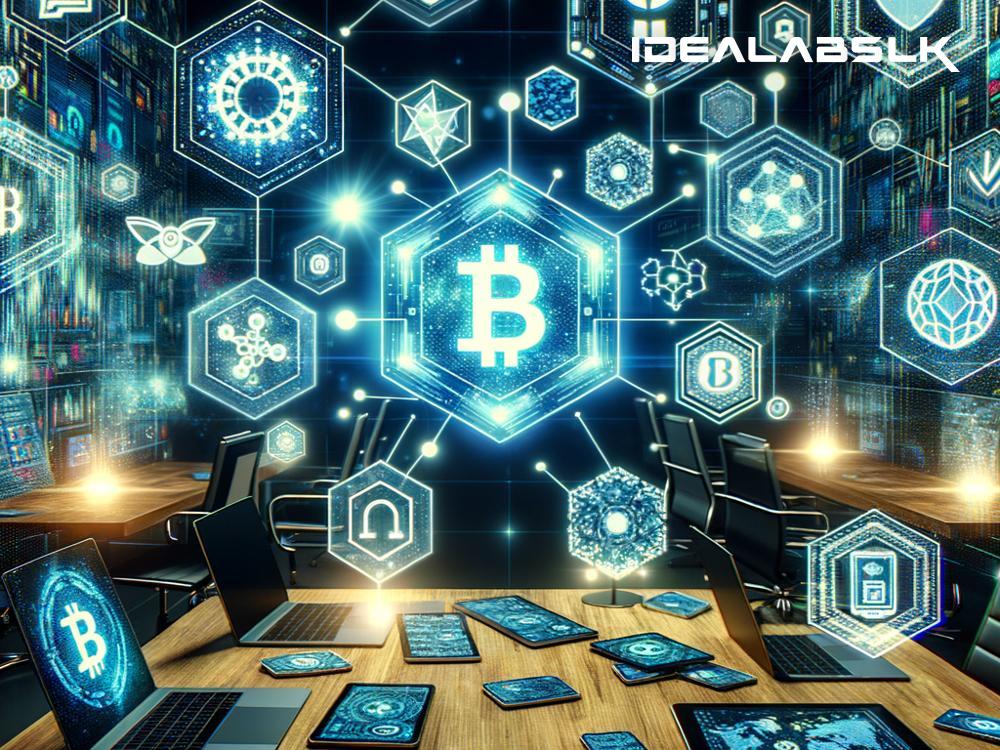Title: How Blockchain Will Revolutionize Future Marketplaces
The world of buying and selling is on the brink of a major transformation, thanks to the advent of blockchain technology. This innovative tech, which first gained fame as the backbone of cryptocurrencies like Bitcoin, is now setting the stage for a whole new era in marketplace dynamics. In simple terms, blockchain is a type of database that ensures secure, transparent, and decentralized transactions. But what does this really mean for the future of marketplaces? Let's dive in and explore the exciting potential of blockchain in reshaping how we trade and transact.
Decentralization: A Marketplace Revolution
At its core, decentralization is what makes blockchain stand out. Traditional marketplaces often rely on middlemen or intermediaries like banks or online platforms, which can introduce extra fees, delays, and sometimes, security vulnerabilities. Blockchain, however, distributes its operations across a network of computers, eliminating the need for a central authority. This means lower costs for buyers and sellers, faster transactions, and enhanced security. Imagine a marketplace where you can directly transact with someone halfway across the world without paying hefty fees or worrying about the security of your payment. That's the power of decentralization.
Trust and Transparency
One of the biggest challenges in online marketplaces and trading platforms has always been trust. How can you be sure that the product or service you're paying for will be delivered as promised? Blockchain technology answers this question through its inherent transparency and security. Since every transaction on a blockchain is recorded on a public ledger and cannot be altered once confirmed, it creates an environment of trust. Buyers and sellers can see the history of transactions, ensuring that the goods or services have actually been provided before. This level of transparency can significantly reduce fraud and increase confidence in online marketplaces.
Smart Contracts: The Automated Middleman
Imagine entering a marketplace where agreements are automatically enforced without any human intervention. Welcome to the world of smart contracts on the blockchain. These are self-executing contracts with the terms of the agreement directly written into code. For instance, a smart contract could automatically release funds to a seller once a delivery confirmation is received, without any delay. This not only speeds up transactions but also significantly reduces the potential for disputes, making trading more seamless and efficient.
Enhanced Security
Security concerns have plagued online marketplaces for years, with stories of data breaches and stolen information becoming all too common. Blockchain's unique structure offers a solution to these issues. Since it is decentralized, there's no single point of failure; to compromise the network, an attacker would need to alter the ledger on a majority of the nodes simultaneously, a task that is virtually impossible with current technology. Furthermore, the use of encryption in blockchain ensures the safety and privacy of users' data, making marketplaces safer than ever before.
Global Reach, Local Impact
Blockchain holds the potential to create truly global marketplaces, breaking down barriers such as currency exchange rates, international shipping costs, and cross-border transaction fees. This could empower small businesses and individual sellers by giving them access to a worldwide audience without the need for expensive middlemen. At the same time, it can benefit buyers by providing access to a broader range of products, competitive pricing, and more direct interaction with sellers.
Challenges and the Road Ahead
While the possibilities are exciting, there are challenges to overcome before blockchain can fully shape the future of marketplaces. Scalability, regulation, and user adoption are among the key hurdles. Blockchain networks need to be able to handle large volumes of transactions quickly and efficiently. Governments and regulatory bodies are grappling with how to oversee these decentralized networks. And, perhaps most crucially, both sellers and buyers need to understand and trust in blockchain technology for it to become the foundation of future marketplaces.
Conclusion
The impact of blockchain on future marketplaces cannot be understated. By fostering an environment of trust, transparency, security, and efficiency, it promises to revolutionize the way we buy and sell. Though challenges remain, the potential of blockchain to democratize trade, reduce costs, and connect buyers and sellers across the globe is truly transformative. As we move towards a more interconnected and digital world, blockchain stands as a beacon of progress in the evolution of marketplaces. The future of buying and selling is not just online; it’s on the blockchain.

